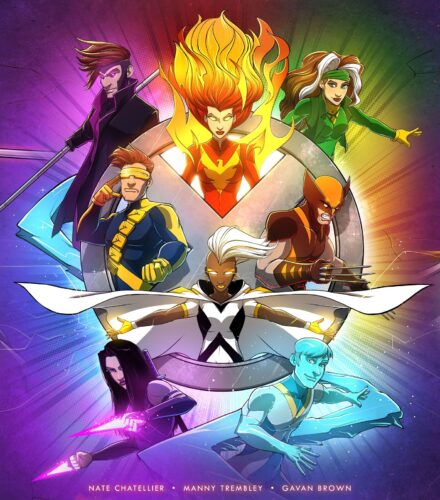The internet is an amazing feat of engineering. A resilient, reliable, fast, and cheap method to move data around the world. I’m a software developer specializing in web application development so the internet has given me a livelihood which I enjoy and which provides well for my family. And I’m an introvert so the internet has given me myriad ways to accomplish daily tasks without needing to leave the house or interact with people. This is great. But something went wrong along the way.
The internet started as a very human thing. People–actual human people!–engineered systems that could connect computers in real time across vast distances. And they used these machines to communicate with each other. These people were mainly academic types interested in the science and engineering behind these feats. The challenges they faced were awe inspiring. As were the solutions.
And throughout these early days the Constant held: Actual human people used the internet to communicate with other actual human people–much, perhaps most, of the time actual human people they already knew in real life or would soon meet in real life. The internet was an extension of, and augmentation to, the social systems already in existence.
For some time one’s first access to the internet was as a college student. And each September a new cohort of freshmen would be unleashed on the internet and the extant user base would indoctrinate them into the etiquette and culture. And this was an important process as it preserved the expectations of behavior in what was still largely an academic, campus-like environment. These were actual human people and the familiar concepts of human interaction carried on from real life to the virtual world. Namely, if you behaved poorly you would be excluded or removed from the group.
Around 1993-1994 the internet experienced what is called the “Eternal September” when the general public started gaining access and it became impossible to indoctrinate the endless flow of new users into the existing etiquette and culture. Things started changing rapidly at this point leading through the massive Dot Com bubble and crash. But there was still the underlying Constant: these were actual human people and the internet was still an extension of, and augmentation to, the social systems already in existence.
When Facebook came on the scene in 2004–focused exclusively on creating an online addendum to college-student socializing–the Constant still held. You created an account, you affiliated with a school, you could find and connect with other students at your school. Everyone was still a real human person.
Then around 2008 something changed. The Algorithm. Suddenly, when logging into Facebook, you no longer saw only what your friends were up to. You saw what the Algorithm wanted you to see. It started innocuously enough. You liked your friend’s post about a soccer game, here’s a post about another soccer game–but made by someone you’ve never heard of and never met and probably don’t care about. And you also suddenly began to discover you didn’t see something that an actual friend posted. The Algorithm decided not to show it to you.
While this was happening the Constant was weakening. Fewer and fewer posts were from people you actually knew. Slowly, instead of communicating with an extension of your real world social system, you were being shouted at based on the whims of the Algorithm. And the Algorithm served only one god: Engagement. Engagement being how long users stayed around looking at things, clicking on things, and typing comments. But why did companies care about engagement? Advertising.
Obviously, advertising existed before the internet and showed up on the internet pretty early on. Eventually websites were being overrun with ads. Banner ads across the top, sidebar ads along the left and right, interstitial ads, footer ads. Ads everywhere. It was terrible.
The spatial dimensions were saturated with advertising. But the Algorithm unlocked the temporal dimension for even more advertising. The longer you stick around the more ads you can be shown. Now the Algorithm’s purpose becomes clear and the addition of the Algorithm turns advertising into something else entirely.
If you log in to Facebook and read the two posts written by your friends and then log out you maybe saw two ads. But if you log in to Facebook and are blasted with a firehose of carefully-selected tripe which contains the two posts from your friends then the algorithm can learn exactly which psychological tricks work on you to keep you around for as long as possible. Videos of cats falling off chairs? Check! Men or women dressed provocatively? Check! Rage-inducing articles about what “they” are doing now? Check! Examples of early-gothic architecture across Europe? Check! No matter what it is, the Algorithm will find it and exploit it.
The Constant was destroyed. The internet was no longer actual human people communicating with other actual human people. It became dump-truck loads of crap being broadcast at you in order to engage you for as long as possible so that advertising can be shoved in your face. The Algorithm decides what you see and the algorithm doesn’t care who it hurts in the process.
Here, finally, we reach the present day. The Algorithm is making money hand over fist for every company that turns it on. It cares not for reality, legality, or morality. And so a final new addition seals our fate: Manipulators.
Once a company turns on the Algorithm it becomes impossible to resist the siren’s song of tweaking the algorithm. Internal Manipulators can trivially make the Algorithm suppress content critical of the controller’s own actions or the actions of people they support. It’s just as trivial to promote content that benefits themselves or pushes a certain worldview.
External Manipulators usurp the Algorithm for their own ends. The Algorithm demands engagement. And from the outside one need only convince the Algorithm that a seeded piece of content is good for engagement and it will take care of the rest for you.
It turns out that some of the most engaging content is anything that gets people mad. So the Algorithm foments discord and encourages arguing and attacking. But this is not the Constant: actual human people interacting with actual human people. These participants have become blinded by the Algorithm and no longer see each other as “actual human people.” It’s road rage writ large and unending. You eventually get out of your car and cool off, but the internet is always right there in the palm of your hand. People you’ve never met making you mad every time you look. And then it gets worse. Those people you’ve never met making you mad may not even exist.
In order to convince the Algorithm that content is good for engagement the External Manipulator uses fake accounts that will interact with the seeded content, argue with each other, and then argue with any actual human who engages them. The more arguing you do the more engagement the Algorithm measures. Then the Algorithm and anger do the rest. Want to turn a community against a group of immigrants? Make up and post stories about people eating pets and the Algorithm takes it from there.
Since the Algorithm provides a custom view to every user it becomes impossible to tell from the outside if this is happening. One defense is to prefer services which don’t do per-user modification. If you can use the service without creating an account it’s probably not doing per-user modification. If you don’t have to log in then you can check for per-user modifications by comparing what you see on different devices. For services which you must log in to you can compare what you see to what a friend sees.
So here were are. The Algorithm has encouraged us to dehumanize the actual human people that surround us because it makes someone rich. I think the only chance for humanity to correct from this feedback loop of destruction is to disconnect from these systems. We need to see each other as actual human people again. As much as I hate to say it as an introvert, we all need to get away from our phones and keyboards and go outside and meet our neighbors.






